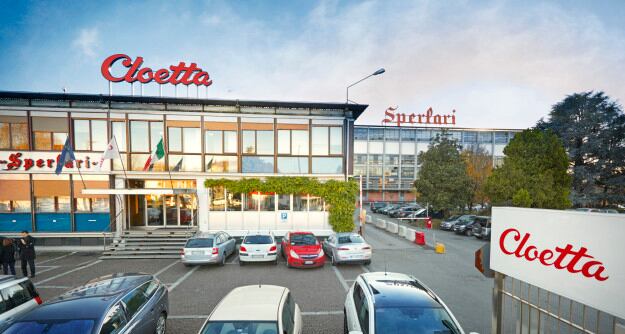Cloetta Italy posted sales of SEK 750m ($84m) in 2016, but the business has struggled in the domestic economic climate.
“The macro situation in Italy has been challenging for many years which has led to a decline in sales for Cloetta Italy over the last years,” Jacob Broberg, SVP of corporate communications & investor relations at Cloetta, told ConfectioneryNews.
Factories would be included
The Italian business represented around 12-13% of Cloetta group sales in 2015.
Cloetta Italy operates four factories - Cremona, San Pietro, Gordona and Silvi Marina – and employs 450 people, including sales & marketing staff.
The Cloetta group is conducting a strategic review that may lead to the divestment of the entire Italian operation, including the four factories.
Cloetta’s four Italian factories

Cremona - 6,400 MT
Gordona, 6,200 MT
San Pietro in Casale - 2,100 MT
Silvi Marina - 1,100 MT
[2015 data from Cloetta’s annual report]
The company sells the brands Sperlari (nougat and candy), Galatine (sugar confectionery), Dietor (sweetener), Dietorelle (sugar-free candy) and Saila (pastilles) in Italy.
Cloetta said it may be able to improve group EBIT margin by divesting the Italian unit.
It said Cloetta Italy now represented an impairment requirement of SEK 771m ($86m) pre-tax and SEK 594m ($66m) post-tax that will be reported in the group’s fourth quarter results.
The company said the impairment was “non-cash in nature” and would not impact Cloetta’s net debt/EBITDA.
The Italian market
Italy is the largest confectionery market by value sales of the countries where Cloetta is active, but had the lowest per capita confectionery consumption of all these markets in 2014, according to figures in Cloetta’s latest annual report.
Cloetta was the number two player in the Italian sugar confectionery market in 2015 with an 18% value share, behind leader Perfetti Van Melle (34%) and ahead of Elah Dufour Soc Alimentari Riunite (5%), according to Euromonitor International.
The market research firm has forecast a compound annual growth rate (CAGR) decline in retail sales value and volume of 1% in the Italian sugar confectionery market up to 2020.
Cloetta’s 2015 price hikes
Most of Cloetta’s sales in Italy come in a large number of small shops, which are usually handled by sales agents that work for several suppliers.
The company’s Italian sales volumes dropped in 2015 after it upped prices as much as 20% of key seasonal products in response to increased nut prices.
Cloetta said in its annual report it was engaged in court action with the Italian tax authority concerning tax payments between financial years 2005-2010. Broberg said Cloetta was in discussions with the tax authority and expects an outcome very soon.
